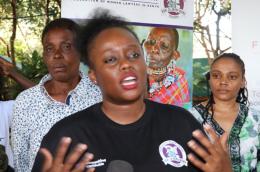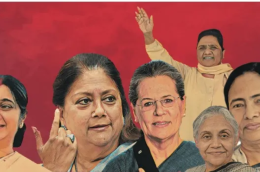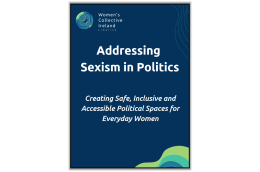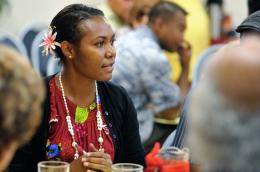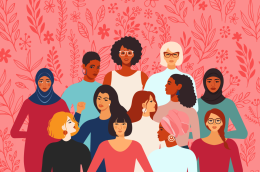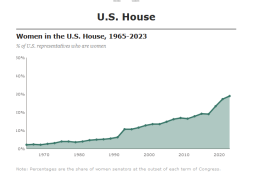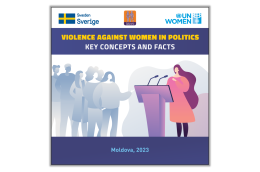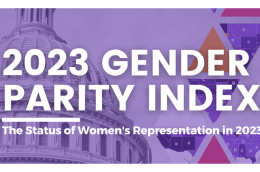Parliaments & Representatives
Main navigation
As part of the IPU series 'A conversation with...', we interview parliamentarians from all over the world to find out who they represent and what motivates them.
In this edition, we discover Gabriela Morawska-Stanecka, a Senator from Poland and a member of the IPU's Executive Committee.
Click here to listen the full conversation published by the IPU on 25 April 2024.
.
According to the U.S. Census, the majority of Americans are women, yet only 31% of Wisconsin State legislators are women. According to the Pew Research Center, there were 1 million fewer men enrolled in college than women this past winter. Yet women earn $0.84 for every dollar earned by a man.
The implications of changing gender roles, which seemingly should empower women, do nothing to counteract America’s structural and ideological underpinnings of women. As a young woman in university studying politics, I am inspired by women who hold political office, but it becomes obvious that female candidates must prove themselves to a further extent than male candidates.
Oppressive ideology, as well as the perception of women within our society, exemplifies that a woman must jump impossible hurdles to be America’s president. These hurdles are deeply rooted in American ideology and the policies that uphold a discrepancy of power between men and women.
Read here the full article published by The Cap Times on 23 April 2024.
Image by The Cap Times
.
In this on-the-record briefing, Professor O’Brien discusses gender and politics. She also speaks about the impact of electing more women, the importance of women’s representation in the political and economic decision-making process, if the number of women running for office globally are increasing or decreasing, and gender differences in voter turnout.
Diana O’Brien is the Bela Kornitzer Distinguished Professor of Political Science at Washington University in St. Louis. Her teaching focuses on the causes and consequences of women’s political representation across the globe. Her areas of study are gender and political parties, legislative politics, executive branch politics, and citizens responses to women’s presence in politics.
MODERATOR: Hello and welcome to the Washington Foreign Press Center’s virtual briefing on Women in Politics. My name is Doris Robinson and I am the briefing moderator. Our briefer today is Diana O’Brien; she is the Bela Kornitzer Distinguished Professor in the Department of Political Science at Washington University in St. Louis. Her research and teaching focus on the – focuses on the causes and consequences of women’s political representation in high-income democracies, including Western Europe and the United States, as well as across the globe. Her areas of study are gender and political parties, legislative and executive branch politics, as well as citizen responses to women’s presence in politics.
And now for the ground rules. This briefing is on the record. We will post the transcript and a video of the briefing later today on our website at fpc.state.gov. And a quick reminder, please make sure that your Zoom profile has your name and media outlet that you represent. And finally, before Professor O’Brien makes opening remarks, just a quick reminder that she is an independent subject matter expert and the views expressed by briefers not affiliated with the Department of State are their own and do not necessarily reflect those of the U.S. Government. Their participation in FPC programming does not imply endorsement, approval, or recommendation of their views.
And with that, I will now invite Professor O’Brien to provide opening remarks. Over to you.
Read here the full briefing published by the USA Department of State on 16 April 2024.
Image by USA Department of State
A historic law, the Nari Shakti Vandan Adhiniyam, 2023, mandates the reservation of one-third of the total seats in the Lok Sabha, state Assemblies, and the Legislative Assembly of the National Capital Territory of Delhi for women.
In 2023, a historic law was passed to usher more women in governance. The Nari Shakti Vandan Adhiniyam, 2023, mandates the reservation of one-third of the total seats in the Lok Sabha, state Assemblies, and the Legislative Assembly of the National Capital Territory of Delhi for women. But representation in leadership isn’t the only sign of gender parity in politics — active participation of the women electorate is also paramount.
So, how has India fared in both regards so far? India Today’s Data Intelligence Unit analysed the turnout data from 1962 to 2019 and candidates’ data from 1957 to 2019 and found a mostly positive trend.
TURNOUT GAP NARROWED
In 1962, men's turnout stood at 63.3 per cent, while women's turnout was notably lower at 46.6 per cent, indicating a considerable gap of 16.7 per cent. This gap fluctuated over the subsequent decades but generally narrowed. For instance, in 2014, men's turnout was 67.1 per cent, while women's turnout increased substantially to 65.6 per cent, resulting in a smaller gap of 1.5 per cent.
Read here the full article published by India Today on 13 April 2024.
Image source: India Today
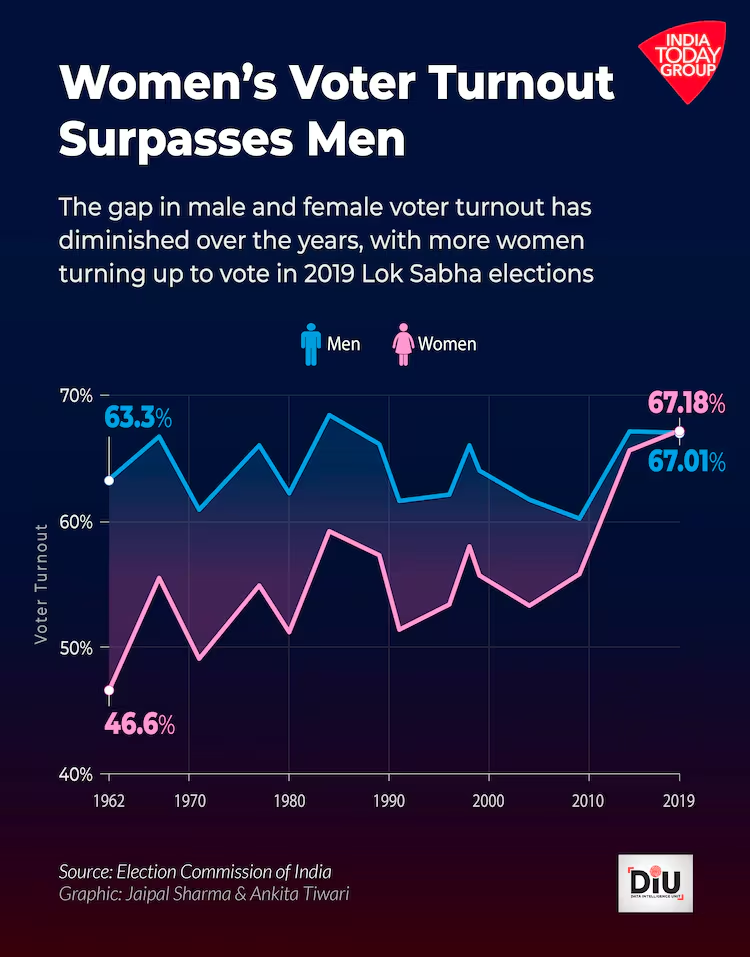
Federation of Women Lawyers in Kenya (FIDA Kenya) is engaging with the female leaders and citizens, to enlighten and make them understand their role in the democratic process and also for the women leaders to have the courage to interact with the public and take up political leadership.
The ongoing town hall meetings bring together FIDA, women leaders and grassroots women to interact and discuss the role of the citizens when it comes to promoting women in political participation.
FIDA Kenya programme Officer Virginia Kibunja, speaking in a meeting in Kirinyaga West Sub-County, said with support from other partners such as USAID and ElGIA, they have initiated a project that works towards eliminating the barriers that hinder the participation of women in politics.
“So today we are here to understand what is Kirinyaga doing in terms of promoting women in political participation, and what barriers are they experiencing, and how best they can be solved in order to increase the number of women joining political leadership in this region,” Ms Kibunja said.
Read here the full article published by the Kenya News on 8 April 2024.
Image source: Kenya News
On the eve of India’s independence on August 14th, 1947, a momentous gathering filled the parliament gallery, eagerly awaiting Jawaharlal Nehru’s iconic address, his famous Tryst with Destiny Speech.
However, the session commenced with Sucheta Kripalani, a revered freedom fighter and later India’s first woman Chief Minister, singing the patriotic anthem “Vande Mataram” to set the stage for the historic occasion.
Why are we discussing her today? Because since India gained independence, significant progress has been made, including the rise of women leaders, chief ministers, and even a woman Prime Minister.
However, despite these advancements, women’s representation in politics still lags behind. While women dominate local bodies at the grassroots level, the question remains: what about leadership positions at the highest levels?
Read here the full article published by Mahabahu on 5 April 2024.
Image source: Mahabahu




